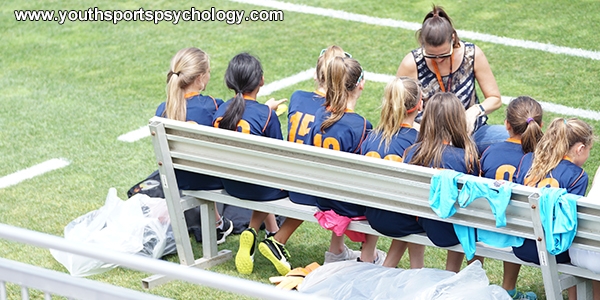How Can Young Athletes Trust Their Skills in Games?
A sports parent asks:
“When my son plays certain sports, especially basketball, there’s clearly and no hesitation to “mix it up” aggressively. He doesn’t always translate skills to game situations… he often fails to let his skills flourish due to the lack of aggressiveness and/or toughness. (The best example I can provide is that when he drives into traffic, he usually modifies his release so as to avoid contact, thereby seriously hindering his chance to make the shot and eliminating the chance of drawing a foul that is there to be drawn.) I’m wondering if you have any recommendations for this limitation?”
Often when players perform well in practice but fail to translate their “practice game” to real competition, they lack trust in being able to properly utilize the skills they learned in practice.
But trust is influenced by several other factors in athletes’ mental game…
This lack of trust is due to fears such as making a mistake and embarrassing themselves in front of their coaches, family, and friends. In essence, this is fear of failure.
Fear of failure is one of the toughest mental game challenges players face.
That’s because it compounds as young athletes make more mistakes.
With each mistake, they worry about what others think about their performance. They also start playing more tentatively, with little confidence, and that hurts their performance.
When this happens, it’s critical to uncover what fears are plaguing your young athletes.
- Are they afraid of being embarrassed in front of friends, coaches and teammates?
- Are they worried about making more mistakes and playing even worse?
- Are they worried about getting taken out of the game by the coach?
As sports parents, it’s your job to help kids figure out what they’re afraid of if they perform poorly. You also want to encourage them to let go of mistakes.
Better yet, let them know that mistakes are part of sports. They must have your permission to make mistakes. Give them three “get out of jail” cards to help them overcome mistakes.
Give them a “flushing” sign to help them move on after mistakes, as suggested by the Positive Coaching Alliance.
In addition, you want your athletes to play all out and trust in their skills no matter how many mistakes they’ve made in the game.
Related Articles on Youth Sports:
- Why Athletes Become Intimidated
- When Coaches Yell, Insult and Intimidate Sports Kids
- How Athletes Can Stop Overthinking
*Subscribe to The Sports Psychology Podcast on iTunes
*Subscribe to The Sports Psychology Podcast on Spotify
The Composed Sports Kid

“The Composed Sports Kid” audio and workbook digital download program for young athletes and their parents or coach helps kids cope with frustration and anger in sports. Help your sports kids learn how to manage expectations and let go of mistakes so they can keep their head in the game.
The Composed Sports Kid system is really two programs in one–one program to train parents and coaches how to help their kids practice composure, and one program that teaches young athletes–ages 6 to 13–how to improve composure, let go of mistakes quickly, have more self-acceptance, and thus enjoy sports more!

